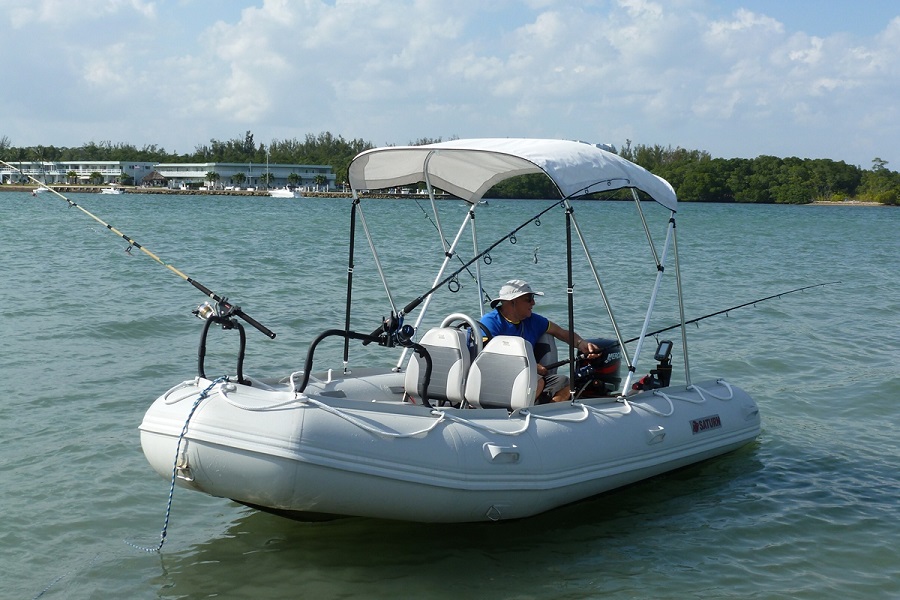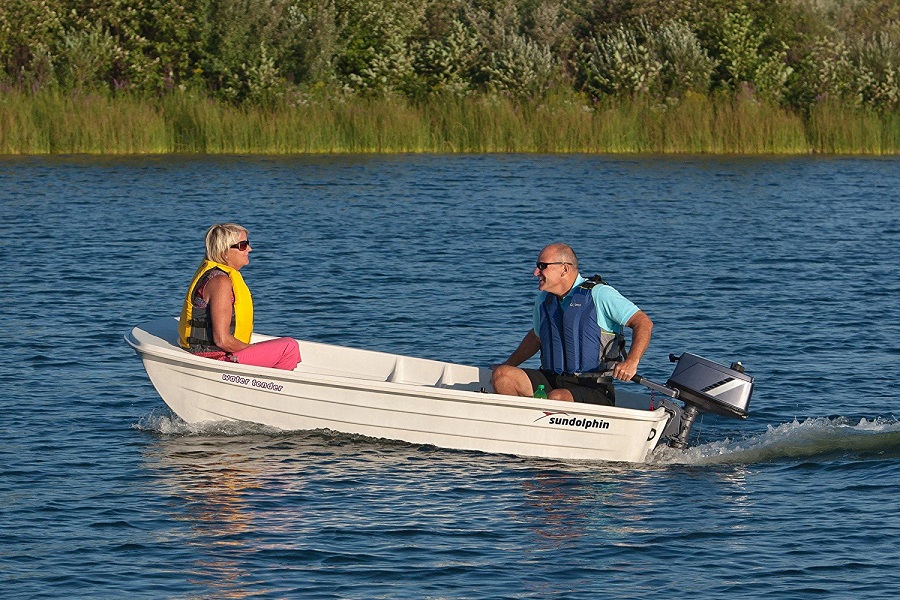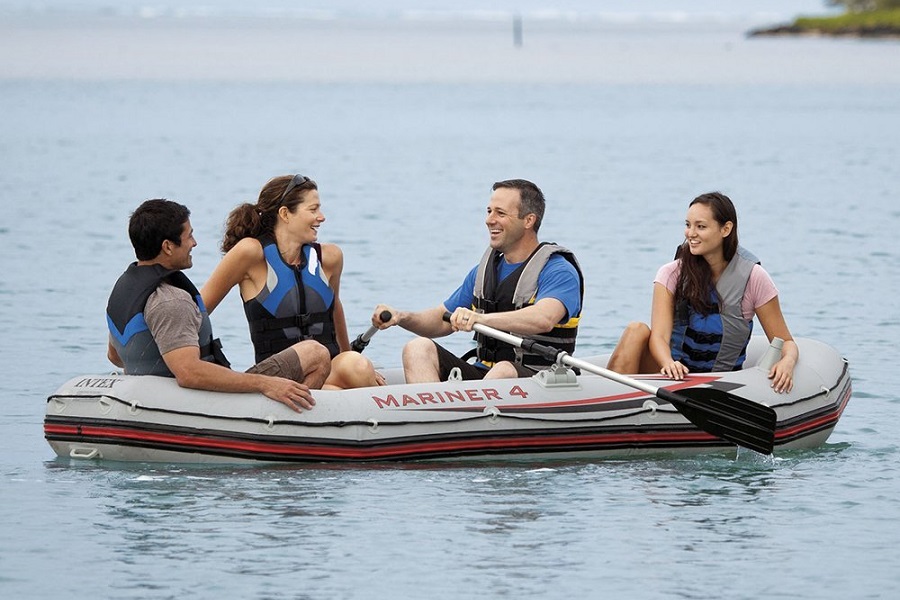Fishing for sport, recreation, or business is a timeless activity. Fishing can serve a variety of functions. Each one plays an important part in choosing how you will fish, where you can fish, and what equipment/licenses you will need.
Recreational Fishing can be an inexpensive hobby. It can also be a very serious endeavor. The amount of money that goes into fishing entirely depends on a variety of factors. It encompasses elements of both art and science depending on the fisherman.
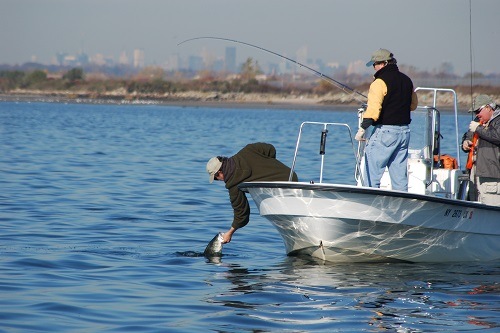
In it’s various forms, fishing makes up a multi-billion dollar industry. It has a long rich history and complicated affair with environmental rights groups. Due to this, angling technology and regulations undergo constant change.
Staying up to date with what is the newest and best tools available isn’t easy. Not to mention, the tough consequences of not considering what you need to both fish, and fish legally, can make it even more of a challenge. Whether you need a small saltwater fishing boat or inflatable fishing boat, we will give you the info to make an informed decision.
Figuring Out What You Want
As much as fishing is meant to be a leisurely activity, the setup and initial costs can make some wary. The reality is that the amount of fun you can have isn’t limited by your funds. While having a boat definitely makes it easier to have access to big game fish, there are a myriad of options available.
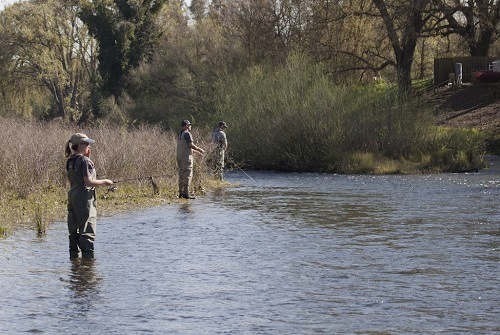
There are a few questions any aspiring angler needs to ask themselves:
- Will you be fishing from land or from the water?
- What size game are you intending to pursue?
- Are you aware of your local or intended fishing area’s regulations?
- What type of rod will you be picking up?
- What types of tackle do you think you will need?
- How often do you intend to fish?
- Will you be buying a boat?
- Where will you be storing it?
- How will you be transporting it?
Each question helps narrow down the details you need to consider to make your fishing game plan. While some snobbish anglers consider fly fishing from land the best way to really test your skills and give yourself a challenge, others are interested in fishing for the trophies and pictures.
Ultimately, you have to make the initial decisions on how you plan to proceed with your hobby. It will make it far easier to only spend money on what you need. Spending the money on a personal fishing boat is an investment. If you are looking for larger game, being landlocked won’t make sense.
If you intend to find the best offshore fishing boat, you won’t be likely to consider a small lake fishing boat. This same common sense approach tends to be overlooked on the smaller details. We’ll go into some of those details.
Size Of Fish, Fishing Rules & The Game Commission
The size and species of fish that you plan to pursue matters. It’s one of the biggest concerns for environmental groups and for that same reason is why the gaming commission cares as much as they do.
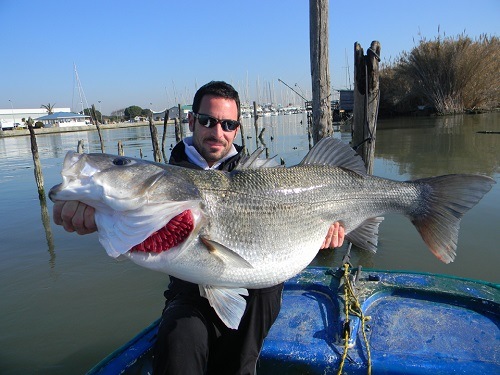
Game wardens carefully and randomly inspect boats, homes, and more. They are one of the most powerful agents of government in terms of flexibility of their jurisdiction. There are horror stories of avid anglers and hunters being fined thousands of dollars and losing their licenses for accidental misunderstandings.
Who Is The Game Commission
The Game Commission's functions as both a federal and state level agency that is responsible for protecting and enforcing hunting and fishing regulations. This can be anything from the limits on daily catches to the types of species allowed to be captured.
In some cases, they enforce the time of year restrictions on which certain species can be hunted or caught. They handle everything from licenses to dictating the regulations themselves.
Why Are They So Harsh?
Essentially, they are responsible for ensuring that species being hunted and fished can last. Without them, there is the possibility for overfishing which can severely damage the ecosystem of an area. They manage population control and ensure that the finite resources that are available can be enjoyed year after year.
They control the number of anglers, hunters, and the amounts of fish that can be targeted for long term benefit. Their job is hard due to the massive amounts of people that don’t want to be told what to catch and what not to.
Their level of control even includes the ways that fish can be caught. This is also to prevent overfishing. Fishing traps depending on the area can be illegal. The reason is that they are ways to accidentally trap fish that shouldn’t be caught in large volume.
Getting Your Fishing License
A fishing license can cost a small chunk of money. Usually they range between one to a couple hundred dollars for recreational licenses. They tend to be for a year to three years with some areas breaking it up by season and game type.
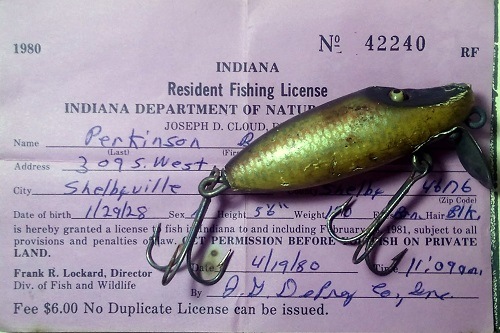
Depending on your area, you may be required to have a fishing card as well as a fishing tag. The fishing tag and license go hand in hand for identifying your limitations. It’s important to keep both on you when going on a trip.
General Rules For Fishing
Beyond regulatory rules, there are a few rules of thumb for ensuring you have a great fishing trip that are good to keep in mind:
- When buying a rod/equipment, be honest about your skill level.
- When buying and using a boat, consider how often you will use it and maintenance costs.
- Know your catching limits.
- Match the equipment to your intended target.
- Your bait is everything.
- Patience is a virtue.
Fishing For Recreation
When fishing for recreation, your total starting costs will rarely go very high. The main costs to consider are your tackle boxes, line, bait, rod, sinker, and bobbers, and hooks. Most anglers are able to get out a max of a few times a month.
Your focus on your equipment will mostly on ease of use and length of time they will last. Good quality rods can stand up to the test of time. More often than not, they will last up to ten years as long as handled with care with only minimal parts needing replacement.
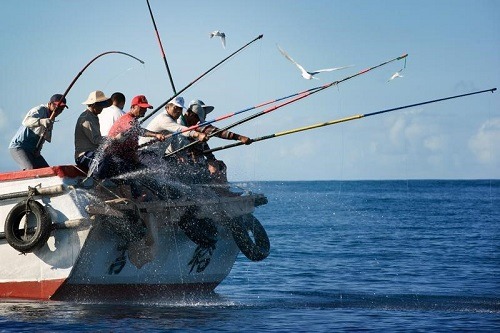
Many recreational anglers choose to go with any number of vessels for their trips. This can range from a small inflatable boat meant for one or two people. In other cases it could be a dinghy. A dinghy is a small aluminum fishing boat with a motor attached that can be used for freshwater or saltwater areas. They are popular in areas with small channels and streams for their easy navigation capability and low cost.
Fishing For Competition
Fishing for competition should not be a beginners focus. The biggest cost that can go with freshwater or saltwater competitions or buddy competitions can be a bass tracker boat. These types of fishing boats are made to provide speed and flexibility when in use.
They are made to only hold two to three anglers. There isn’t a massive amount of room and the live pools are perfect for limited catches. The types of game you will go after will vary but will usually be directed towards medium to large game.
Pick Your Equipment
What equipment you choose can be the difference between tangled lines and disappointment versus a calming weekend. For beginners, spincasting rods are the perfect starter. For more advanced anglers, a fly casting rod offers the perfect amount of speed, action, and control.
Every piece of equipment comes with benefits and disadvantages that vary based on price, model, or what works for you fishing style/game interests. There is no objective best rod or tackle set. Likewise, there is objectively no best boat except in terms of function for a purpose.
Fishing Rods
Fishing Reels aren’t complex. The differences between one another lay essentially in their materials, features, and their casting and reeling style. The two previously mentioned styles are what are normally used for both beginning and advanced anglers. We will focus mostly on the features and materials that differentiate them.
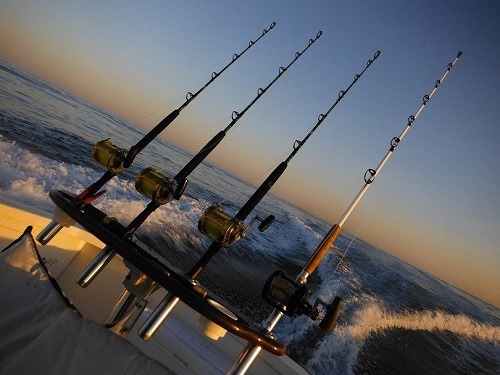
There are an abundance of angling rods, reels, and equipment that are only limited by how you want to approach fishing. It can be overwhelming for someone just trying to get started. The main things to consider are:
- What are the weight restrictions of the line you will choose?
- What kind of bait will you be using?
- Do you intend to cast comfortably?
Spincast reels make sense for kids and for casual anglers that want to catch the more basic end of the game spectrum. It’s due to the lower weight capacity and reeling strategy needed to bring them in.
The line can usually handle them and the reel will be able to still fluidly bring them in via its distance capability. Gradually, the natural progression is to spinning, flying casting or another form. From there, as the size of your targeted game increases, you will have to consider other reels.
Ideally, your rod will have a relaxed weight distribution. Your reel plays an important role for fluidly bringing in hooked game. If the setup is uncomfortable, it can lead to your arms or hands tiring or jerking motions that can disturb your catching process.
The main features to examine when it comes to picking a reel and rod:
Length
The length of your rod can vary between a few feet up to ten feet. On the higher end of the spectrum these are predominantly fly casting rods. The length matters both for the amount of space you need to cast as well as where the reel is placed.
If the reel is not heavy enough, the top will lean more and make your cast more choppy. If the length is too much and the reel is too weighed down, it can kill the momentum of your cast. This limits your distance.
Material
Using a carbon fiber rod is the way to go. Skimping on the materials for your rod means that you rod will not be able to be a elastic as it could be. This also cuts down on your casting control.
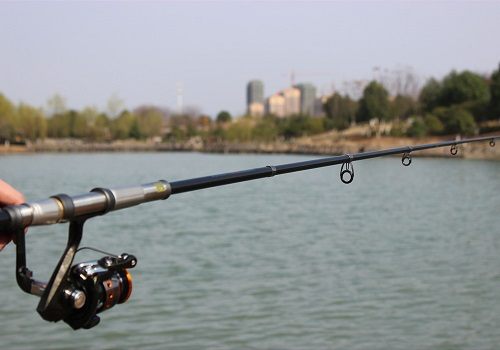
Control Features & Sensitivity
The sensitivity of your rod is one of the defining features of how well you will be able to angle. It will let you know when you are reeling against obstacles and will make it easier to cast more effectively. The control features also contribute to the flexibility of your cast and reel. You’ll lose less catches by investing in a more quality pair.
Tackling The Tackle
Your tackle equipment are the finer details of your set. Your bobber controls the depth at which your line and hook will be able to sink to lure your potential catches. Your sinker will weigh down your line and hook and will determine how easy it is for you to sense when you have something nipping.
Initially, the best way to figure out what works is to check what other anglers use. The setup you pick will be dependent on the amount of patience you have, where you fish, and what types of game you are trying to catch. Your hook can be simple or as complex as you need to make sure you hold onto your catches.
How much you spend on fake bait versus real bait will be determined by whether you want to go the extra mile. Live bait generally does more to capture bigger game because of their more predatory nature. Some fake bait just doesn’t convince serious game nor keep them interested long enough to stay on the line.
Time Commitment On Your Trips
The amount of time you will invest will be based on your schedule. However, for those that are serious about making time for their fishing trips, it only comes down to commitment. Once you have everything in place and are out on the water or at your favorite spot, buckle down. Too many newbie anglers expect magic to happen their first trip.
They expect the serenity of the natural environment to be an automatic adjustment. It is something that takes acclimating to. The intense quiet can cause jitteriness and lead to scaring away fish. The best times to go are early in the evening or early in the morning.
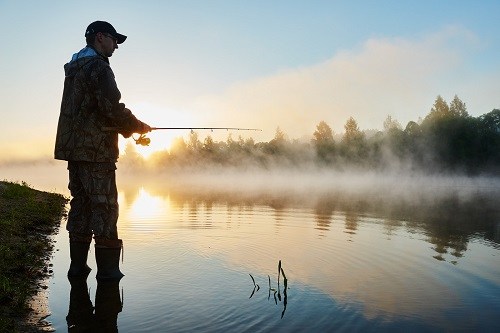
The less chance of outside animal interference or water movement leads to calmer waters. Calmer waters are the best places for new fishers to become familiar with the waiting game that is fishing.
As much as fishing is about serenity, it is also about strategy. Using fishing maps and past fishers experiences, you will be able to learn to pinpoint where the best spots are. The biggest thing to consider is how your time will be broken down, from setup to actually beginning.
Most either underestimate the time it takes to get going or overestimate. While it isn’t easy, with proper preparation, it can be simple to find your best approach that yields to your best catches.
Understanding The Fishing Process & Ways Of Catching
There is an old saying that goes, “There are more than one ways to skin a cat”. Likewise, there are more than one way to catch fish. For those that are intending to fish with a net and and go for a more widespread amount of game, it’s worth considering.
- Traps
- Nets
- Shucking tools
If your goal is to catch the most diverse pool of aquatic life, your range for both bait and the tools you will need will be more substantial. With all of the options available, it means that you will have to do more than have a general idea of what you want to catch both short and long term.
Making A Plan
Before we move onto the most important piece of fishing equipment possible, it’s first important to understand what making a plan entails. The essential parts of any fishing plan includes:
- When will you be going fishing?
- How much equipment will you need?
- What will you be catching?
- How long do you intend to be fishing for?
- Will it be focus sport or a leisurely group trip?
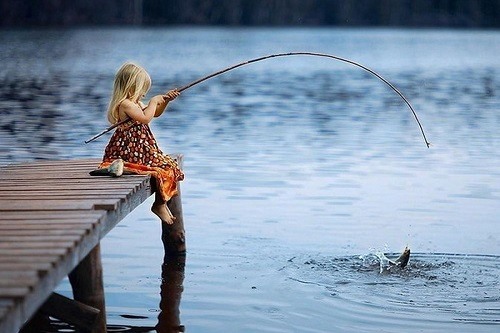
If you plan to fish once every few months, getting a massive boat would be pointless. Most fishers that want flexibility as well as the option to go out with a group choose to charter boats. The equipment you will need from nets to traps will be dependent on how much you want to catch and for what purpose.
If you will be keeping fish or eating fish, you will need to keep careful track of what you track. You need to be able to identify what you are catching quickly. If you catch the wrong fish you need to be able to recognize it fast enough to throw it back before problems occur.
Your Fishing Boat
The single most important piece of equipment is the Fishing Boat. Without it, fishing would be extremely limited in the types and quantity of fish that could be caught. The biggest differences in fishing boats are the variations in add-ons and space. While many assume that bigger is better, this is not the case.
A small portable fishing boat, or a small wooden fishing boat have different limitations when compared to offshore fishing boats. One is made to be used on calm waters for relaxed catching of smaller game. The other is equipped to deal with the rougher requirements of rougher currents.
All purpose fishing boats go a long way to being good for both leisure and fishing activities. They are great for exploration. Aluminum boats are lighter weight and easier to load and dock and control when they drift away.
Cost Of A Fishing Boat
Your ideal boat doesn’t need to be a yacht. While it looks nice, and the idea of having a cabin is good for those that are feeling fanciful, you want something that gets the job done. The more amenities that are focused on comfort, the higher the cost.
Ideally, you want something for starting out or for intermediate casual fishers that is small. A small boat for fishing is easy to store in the driveway or backyard and transport. Bigger vessels require proper storage and maintenance.
A small inflatable boat with motor or a small plastic fishing boat are great for navigating tight areas and getting right where you want to be. They come with the added benefit of being more cost effective and reliable. They are easy to replace or fix if damaged. Your total costs go down substantially. As far as buying fishing boats go, a small lake fishing boat doesn’t require too much money.
Small fishing boat accessories can include a living pool or bucket for holding fish that need to be kept fresh. It can include a tackle box, first aid kit, life jackets and more. The actual cost of a fishing boat can range from as little as a few hundred dollars to the tens of thousands depending on the complexity you want.
Conclusion
Buying new is the only way to go. When you invest in a boat, you want something that will last. Buying an older boat or second hand can lead to problems that you would want to avoid. Every piece of equipment should be meant to save time and improve your experience.
We understand how important fishing is. Fishing shouldn’t be a headache, no matter how complex it gets. Ultimately, it should be about the connection between nature and the angler.
Wasting money on shoddy equipment, or not understanding what you are getting to yourself can be counter productive. Don’t sink money into a subpar boat. Pick every item, from rod to boat carefully, so that every trip can go smoothly. The best parts of fishing can be enjoyed by just getting what you need. Beyond that, everything else is secondary.

